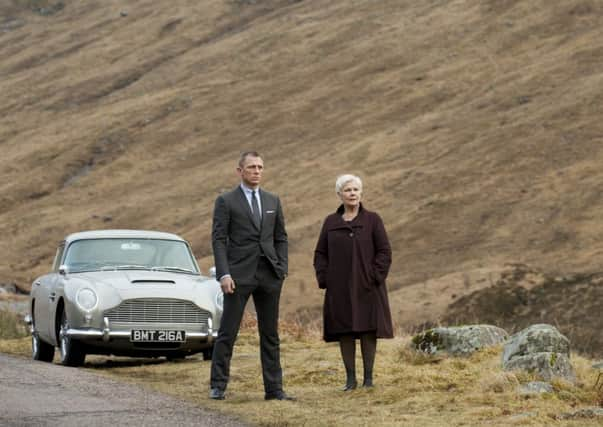Important to remember Scottish film pioneers


Scotland’s screen industry is very much in the news of late. While the recent reports suggest aspects of the industry that need to be developed, at the Saltire Society we have been reflecting on the sometimes unsung contributions of notable films makers.
One of the very simple ways that we can do this is through the award of Honorary Memberships to recognise the achievements of those who contribute to our cultural lives.
Advertisement
Hide AdAdvertisement
Hide AdOne such fine occasion took place recently when we brought together the friends, families and colleagues of two of the finest Scots documentary and film makers, James (Jim) Wilson and Douglas Eadie.
In a career spanning more than 50 years, there is no doubt that Jim Wilson has had a determining influence in shaping 20th century Scottish documentary making and paving the way for its transition to the 21st century digital age.
Jim Wilson came to prominence as the voice of Scottish ‘current affairs’ and culture when he produced the BBC’s Tuesday Documentary slot during the 1970s.
As we move forward and embrace the new technologies that will ensure a sustainable future for the Scottish film industry, it is worth reflecting that such a future would be impossible without the rich heritage of documentary film-making Scotland has inherited from pioneers such as Jim Wilson.
Now available to download free of charge from the Saltire Society website is a paper from Kenny Munro, a visual artist and director of the Sir Patrick Geddes Memorial Trust, which charts Jim Wilson’s long career and many achievements.
The Saltire Society has taken the opportunity to honour another key figure in Scottish broadcasting. Douglas Eadie is perhaps best known for his producer role on the influential Transatlantic Sessions as well as documentary films on major Scottish figures including Sorley Maclean and Dolina Maclennan.
The transition from analogue to digital film technologies has created opportunities to refresh and renew Scotland’s film heritage for a new generation. Take for example the 2013 Digital Research and Development Fund for Arts and Culture in Scotland involving Creative Scotland, Arts & Humanities Research Council and Nesta and providing support to arts and cultural organisations across Scotland seeking to utilise digital technologies to expand their audience reach and engagement.
The Scottish Documentary Institute did just that when it successfully applied to the fund to allow it to develop, in partnership with Distrify, an online crowdfunding and donation tool that has revolutionised the way that people watch the institute’s films. As a result, patrons are now able to donate, arrange community screenings and ‘gift’ films for others to enjoy.
Advertisement
Hide AdAdvertisement
Hide AdAs well as valuing Scotland’s fine documentary traditions it’s also important to recognise the significance of film as an art form and as entertainment.
There are well documented high-profile examples of films made in Scotland in the last decade. Scotland has played host to a string of Hollywood blockbusters. Glasgow provided a remarkably convincing proxy for downtown Philadelphia in zombie flick World War Z while Glen Etive has provided a dramatic backdrop for the climax of 23rd James Bond film Skyfall and the magical school of Hogwarts throughout the eight-film Harry Potter franchise.
In recent times, Scotland has also produced a number of home grown successes such as Sunshine on Leith, Filth and the Angel’s Share, and revisited a TV classic in Weir’s Way, this time with David Hayman.
It’s great to see the imagination and inspiration also evident from independent, innovative film makers such May Miles Thomas’ powerful, award winning Devil’s Plantation and wonderful Dummy Jim from director Matt Hulse. Inspired by James Duthie’s cycle trip from Cairnbulg to the Arctic Circle in the Fifties, we were proud to help Matt take his film to audiences at many international film festivals.
But to safeguard the industry’s future, it is important that we remember the pioneers. We should take pride in those early works, our film heritage, and ensure that it is properly preserved for the future.
We have a fine legacy to build on, exceptional landscapes to act as backdrop and inspiration, important stories to tell and the talent to tell them. We hope the recent debate and discussion on the future of film-making in Scotland will help create the conditions for the imagination, craft and artistry of our film makers to thrive at every level.
For further information about the Saltire Society and to download Kenny Munro’s paper, please visit www.saltiresociety.org.uk .
• Jim Tough is Executive Director of the Saltire Society